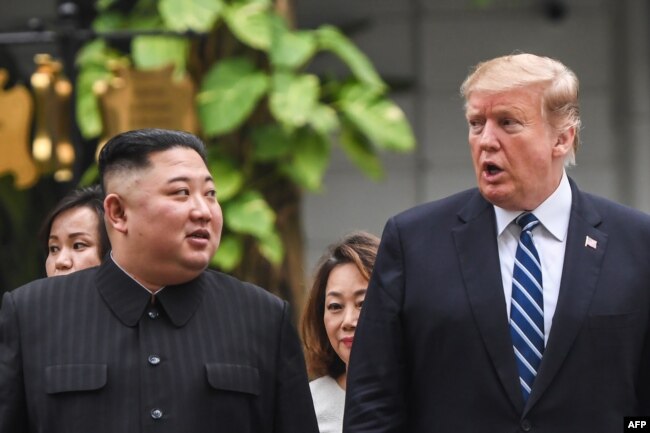So what comes next? After President Donald Trump’s long-awaited second summit with North Korea ended inconclusively, the adversaries enter a period of deep uncertainty, if not fresh crisis, VOA News reports.
Trump, who had built up expectations for months over his second outing with leader Kim Jong Un, left Hanoi early with no deal — and no agreed plan for another summit.
North Korea said it offered to close its Yongbyon nuclear plant in return for a partial easing of sanctions, but Trump — the self-styled master negotiator — called for complete denuclearization in exchange for full sanctions relief.
“The fact that there was no deal — and not even a partial deal, despite the fact that President Trump indicated that a small deal was possible — I think that is a significant disappointment,” said Frank Aum, a former top adviser on North Korea to US defense secretaries.
“All that shows to me that everyone came up empty-handed without a clear picture of where we’re going in the future,” said Aum, a senior expert at the US Institute of Peace.
With Trump already having taken the unorthodox approach of personally negotiating with Kim, observers wondered whether other officials, even Secretary of State Mike Pompeo, could make progress in the face of disagreement between heads of state.
“It’s hard to see credible negotiations continuing. The whole point of leader-level talks was to meet with the person who can make actual decisions. That cuts both ways,” said Abraham Denmark, director of the Asia program at the Woodrow Wilson Center for International Scholars.
But Aum said diplomacy still remained viable, seeing as how North Korea made clear it would not resume missile testing and that the United States is keeping its freeze on joint exercises with South Korea — a goodwill-building dual suspension that had been proposed by China.
“That means there is still hope that over the next couple of years” more progress can be made, Aum said.

